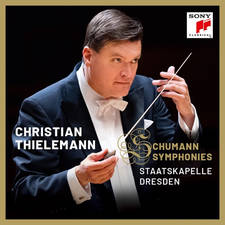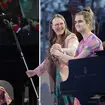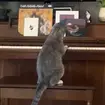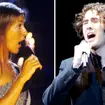Live music at weddings: What are the rules and restrictions in place in England?
18 June 2021, 11:17 | Updated: 18 June 2021, 11:29

If you’re tying the knot before 19 July, here’s all the music you’ll be allowed to have.
After months narrowing down the guestlist to just 30 friends and family, engaged couples in England will finally be able to have a full wedding or civil partnership ceremony from 21 June. Instead of a law-binding cap, the number of guests will depend on how many people the venue can safely accommodate, with social distancing in place.
However, many couples are still choosing to postpone their nuptials until after the newly slated ‘Freedom Day’ on 19 July, because of the continued restrictions on singing, dancing and live music-making.
While a ‘first dance’ is permitted and walking down the aisle to live music has been given the thumbs-up, there are several other limits on music at weddings while we remain in ‘Step 3’ of the COVID-19 roadmap.
Read more: What is the government’s latest covid performing arts guidance?
Congregational singing
Singing hymns is strongly advised against. The government maintains that singing increases the risk of transmission through small droplets and aerosols, through which COVID-19 can spread from person to person.
The same advice goes for shouting and communal singing, so karaoke is also a no-no.
Read more: The nation’s favourite pieces of wedding music

Playing musical instruments
When it comes to having professional musicians at your wedding, the rules are much more relaxed. Professional performers can play indoors or outdoors at a ceremony or reception, so walking down the aisle to live music is fine, as is having a band afterwards.
There is no limit on the number of professional performers that can play. But, as with the number of guests, the number should reflect how many the venue can safely accommodate with social distancing measures in place between performers and guests.
As with the general guidance for performing arts, performers should maintain safe social distancing and avoid playing face-to-face where possible.
The government also advises that playing “some musical instruments” – we can assume based on previous advice, that this means brass and woodwind – increases the risk of transmission, and social distancing should be strictly adhered to if performers are playing instruments like the trumpet or saxophone, to mitigate against risks.
As for amateur music-making, the same advice goes for weddings as for rehearsals and concerts. Non-professional choirs, bands and musicians should only perform in a group of up to six at an indoor wedding. Outdoors, they may perform in groups of up to 30.

Background music
According to government advice, all wedding venues should make sure steps are taken to avoid people raising their voices, including when speaking loudly or singing loudly, and particularly in confined and poorly ventilated spaces.
This includes lowering the volume of background music, and avoiding music or broadcasts that may encourage shouting, particularly if played at a volume that makes normal conversation difficult. So, no singing along at the reception, and definitely no ‘Nessun dorma’ flashmobs from the waiters (see below).
The website advises that this guidance may be updated in the future in response to changing scientific understanding.

Singing waiters shock wedding guests with a surprise blast of ‘Nessun dorma’
Dancing
Dancing is unfortunately advised against due to the increased risk of transmission, with one exception: the couple’s ‘first dance’.
Dancefloors and other spaces for dancing must remain closed, but advice states they can be repurposed for additional seating or stage space, ensuring this is in line with the social distancing guidelines.
See government guidance for weddings in Wales, Scotland, and Northern Ireland.


































